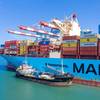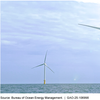USCG Publishes Final Rule for Nontank Vessel Response Plans
The U.S. Coast Guard announced publication of the final rule to increase pollution response preparedness for nontank vessels carrying oil in U.S. waters.
The final rule establishes the content of oil discharge response plans so nontank vessel owners and operators understand how to comply with the preparation and submission requirements of the Coast Guard and Maritime Transportation Acts of 2004 and 2006. The CGMTAs amend the Federal Water Pollution Control Act, requiring owners and operators of nontank vessels to prepare and submit oil spill response plans.
The final rule also updates the International Shipboard Oil Pollution Emergency Plan requirements that apply to all nontank vessels and certain tank vessels. The final rule requires vessel owners and operators to submit their vessel response plan control numbers as part of the notice of arrival information.
The Federal Water Pollution Control Act defines a nontank vessel as a self-propelled vessel of 400 gross tons or greater that operates on U.S. navigable waters while carrying oil of any kind as fuel for main propulsion and is not a tank vessel.
This final rule supports the Coast Guard's strategic goals of protection of natural resources and maritime mobility. It also improves the U.S. pollution response, planning and preparedness posture by helping to mitigate environmental damage resulting from nontank vessel marine casualties.
The final rule may be found at federalregister.gov.













